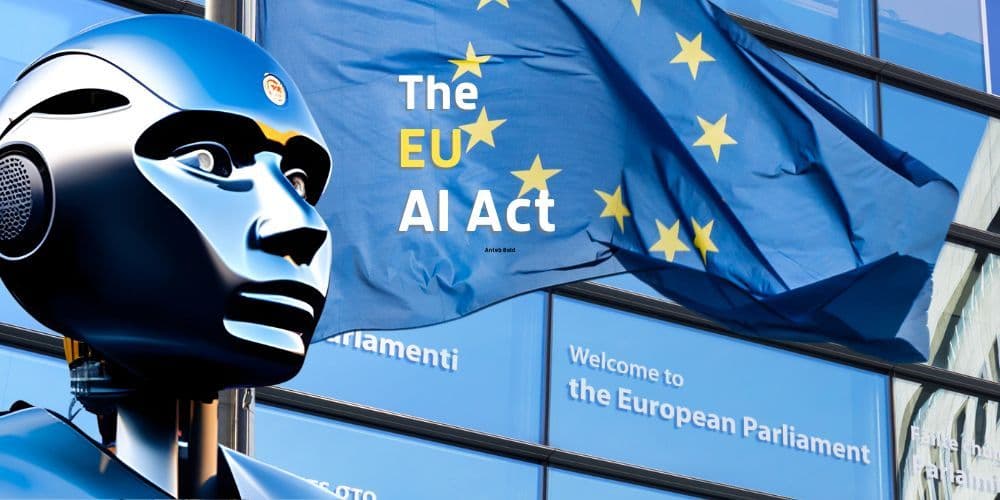The Council of the European Union has approved a law that establishes the world's first uniform rules for artificial intelligence. This law, known as the AI Act, introduces a risk-based approach where the level of regulation is determined by the risk involved. What does this mean for your company or organization? We are happy to explain this to you in this article.
Impact on businesses and organizations
With the AI Act, Europe emphasizes essential principles such as trust and transparency in technology use. For companies, this results in new requirements for AI systems deemed high risk. Such systems must comply with strict regulations before being allowed on the European market. This means that companies need to invest in comprehensive compliance assessments and certification processes to ensure their AI systems meet the new regulations.
The new classification of AI systems has direct implications. Practices such as manipulating behavior and assigning social scores are prohibited. This requires organizations to thoroughly reconsider and adjust their use of AI. Companies must evaluate their current AI systems and potentially restructure them to comply with the new ethical and legal standards.
Supporting measures
The law provides for supportive mechanisms for innovation within the AI sector. Through regulatory 'sandboxes,' companies can experiment with new AI applications in a safe and controlled environment. These facilities are crucial for testing AI under real conditions without legal risks. Furthermore, the AI Act offers subsidies and financial support to small and medium-sized enterprises (SMEs) to assist them in implementing the necessary safety measures and compliance processes.
What is about to happen?
The law will officially come into effect after publication in the EU Official Journal, twenty days after being signed by the European leaders. The rules will apply two years after this date, with some specific exceptions. During this transition period, companies will have time to adjust their AI systems to comply with the new regulations and ensure necessary compliance.
Context and development
The AI Act is a core component of the EU's effort to promote safe and fair AI applications that protect fundamental rights. The initiative for this legislation was launched in 2021 by Thierry Breton, aiming to regulate AI in a way that stimulates innovation while simultaneously safeguarding civil rights. The legislation has been developed in close collaboration with various stakeholders, including technological experts, businesses, and civil society organizations, to ensure balanced and effective regulation.
For companies, this means a necessity to reassess their AI strategies and invest in compliance and ethical AI practices. While the law imposes strict requirements, it also offers opportunities for innovation and support, particularly for smaller enterprises. Companies that proactively respond to these changes can gain a competitive advantage in an increasingly regulated market.
Want to know more?
Would you like to learn more about how your company can comply with the AI Act and seize the best opportunities? Then take
Contact us for advice and support. Discover the possibilities of AI for your business now and stay ahead in the rapidly changing world of artificial intelligence.

